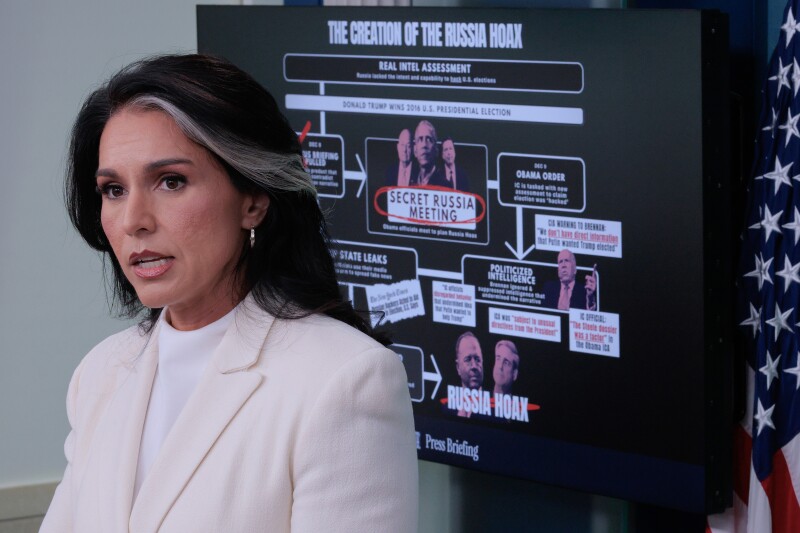The credibility of the nation’s intelligence apparatus and the integrity of public discourse face scrutiny following recent controversial statements by the White House Director of National Intelligence, Tulsi Gabbard, regarding past presidential election interference.
Gabbard has publicly asserted that the extensive investigation into the 2016 presidential election’s alleged interference by a foreign power was, in fact, a “treasonous conspiracy,” challenging years of established findings and widespread public perception.
This claim directly contradicts numerous deep investigations conducted by various congressional bodies and the Department of Justice, all of which, to varying degrees, concluded that external entities did attempt to influence the 2016 election outcomes.
Beyond official inquiries, the public widely observed and documented evidence of extensive online activities by foreign-aligned entities during the 2016 election, making the notion of a complete “hoax” difficult to reconcile with shared experiences.
Throughout her public career, Gabbard has been associated with disseminating specific narratives and has faced accusations of engaging in propaganda. This history raises questions about her approach to intelligence analysis and her role in contributing to complex public discourse.
Critics suggest her recent stance aligns less with impartial analysis of intelligence findings and more with a strategic role as a loyal figure for a former president. This perspective is reinforced by past instances where her assessments were reportedly challenged by the previous administration, potentially shaping her current public posture.
The timing of these claims is particularly notable, emerging as the former president faces increasing pressure over unrelated public controversies. Commentators suggest these statements serve as a deliberate attempt to redirect public attention away from current political vulnerabilities.
While such diversions might temporarily sway a segment of a political base, broader public and bipartisan consensus often remains unmoved, highlighting the limited efficacy of these tactics in shifting fundamental narratives or addressing core issues.
Despite their questionable effectiveness in achieving long-term political goals, these types of pronouncements contribute to a climate of distrust and polarization, posing a significant challenge to the clarity and accuracy of information in the public sphere.






Leave a Reply